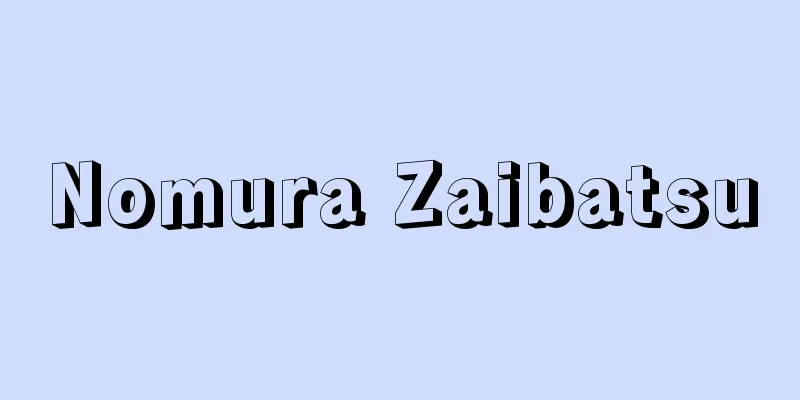Mochizuki

[1] [Noun] ① The moon on the fifteenth night of the lunar calendar. Full moon. Mochi. ※The Bamboo Cutter (late 9th century - early 10th century) "It shines brighter than the daytime. The moon is as bright as ten times the moon." ② The moon on the fifteenth night of the eighth lunar calendar. Mochi. [Season: Autumn] ※Kanazoshi Ukiyo Monogatari (c. 1665) 4 "The fifteenth night of August is called Mochizuki (full moon) because the moonlight is particularly bright." [2][1] Noh play. Fourth piece. Various schools. Author unknown. After Yasuda Shoji Tomoharu of Shinano Province was killed by Mochizuki Akinaga of the same province, his vassal Ozawa Ozabu Tomofusa became the owner of an inn in Moriyama, Omi Province. Tomoharu's wife and her child Hanawaka came to stay at the inn after a long journey, and Tomofusa was reunited with him. By chance, Mochizuki also happened to be staying at the same inn, so Tomoharu's wife disguised herself as Motogozen and sang in front of Mochizuki, while Hanawaka played the eight-horn drum and Tomofusa himself performed a lion dance, waiting for Mochizuki's opportunity to finally take revenge. [2] (Originating from the fact that a newborn horse was presented to the emperor on the night of the full moon in the eighth month of the lunar calendar) The name of Saku City in eastern Nagano Prefecture. Located along the Kakuma River, a tributary of the Chikuma River, it developed as a post station between Hachiman and Ashida on the Nakasendo road during the Edo period. A pasture was established there after the Heian period.Bo-getsu Bow... [Mochizuki]MochizukiSource: The Selected Edition of the Japanese Language Dictionary About the Selected Edition of the Japanese Language Dictionary Information |
[1] 〘名〙① 陰暦十五夜の月。満月。もち。※竹取(9C末‐10C初)「ひるのあかさにもすぎて光たり。もち月のあかさを十合せたるばかりにて」② 特に、陰暦八月一五日の夜の月。もち。《季・秋》※仮名草子・浮世物語(1665頃)四「八月十五夜は〈略〉月の光も殊更に明らかなる故に望月(モチヅキ)とも云なり」[2][一] 謡曲。四番目物。各流。作者不詳。信濃国の安田庄司友治が同国の望月秋長に討たれて後、家臣の小沢刑部友房は近江国守山で宿屋の亭主となっている。そこへ友治の妻とその子花若が流浪の末やって来て宿をこい、友房と再会する。たまたま望月も同じ宿に泊まり合わせたので、友治の妻は盲御前に身をやつし、望月の前で謡をうたい、花若は八つ撥を打ち、友房自身も獅子を舞って望月のすきをうかがい、ついに仇を討つ。[二] (陰暦八月の望月の夜、産馬を天皇に献上したことに由来する) 長野県東部、佐久市の地名。千曲川支流の鹿曲(かくま)川に沿い、江戸時代は中山道八幡と芦田の間の宿駅として発達。平安以降、牧が置かれていた。
ぼう‐げつ バウ‥【望月】もちづき【望月】出典 精選版 日本国語大辞典精選版 日本国語大辞典について 情報 |
>>: Mochizuki [town] - Mochizuki
Recommend
Onshirazu - Onshirazu
…Generally, it is treated without distinction fro...
Masao Maruyama
Philosopher, politician and historian. Born in Os...
Interrenal gland - kanjin
…the former is mesodermal, the latter ectodermal....
Financial Liabilities
…It refers to assets excluding real assets such a...
"Female Orange-eyed Woman"
...This is a dance piece from Kamigata Kabuki of ...
nur al-anwār (English spelling)
…Therefore, in order to understand the whole trut...
Chain saw - cheen so (English spelling) chain saw
A machine that cuts wood efficiently by rotating ...
Urundi
…Official name: Republic of BurundiRépublique du ...
Foehn - Foehn (English spelling)
A warm, dry wind that occurs on the lee side of a...
ANZUS Treaty
Also known as the Pacific Security Treaty. The Pac...
Dunlop Co. (English)
…In 2009, the company expanded into Japan. It the...
Under the Roofs of Paris (English: Sous les toits de Paris)
A French-German co-production from 1930. It was t...
TUC - Teaching English:
Abbreviation for Trades Union Congress. Almost all...
Nettle - Nettle
A perennial plant of the Urticaceae family (APG c...
sun synchronous orbit
...Also, the orbit of a satellite in a polar orbi...









